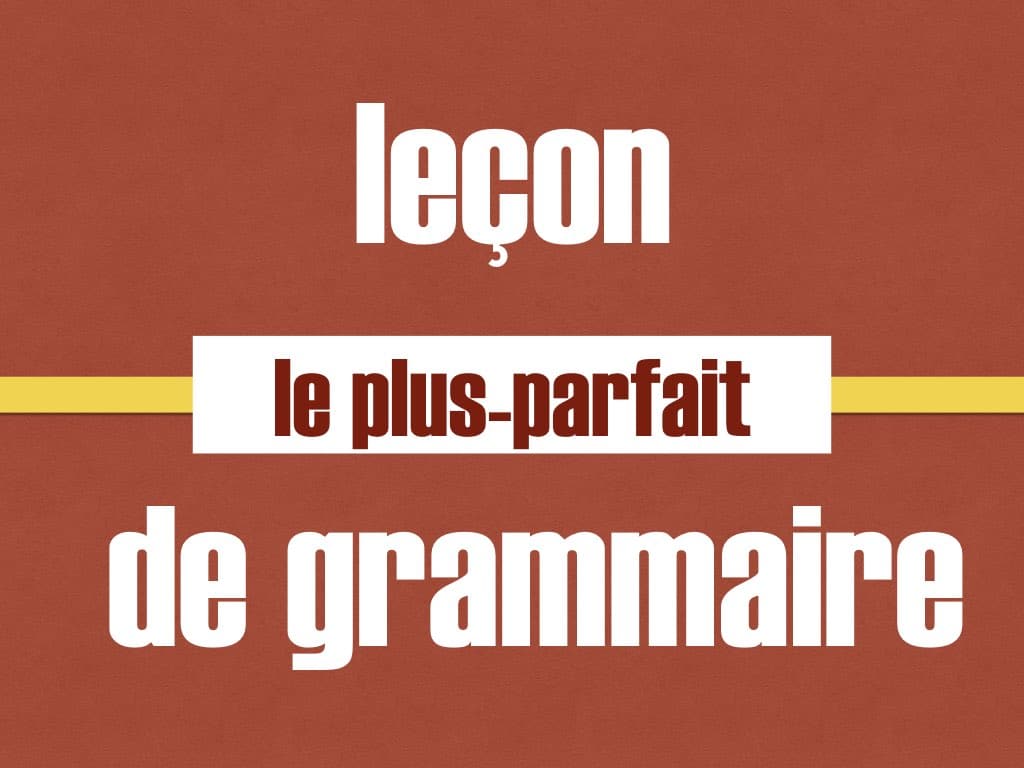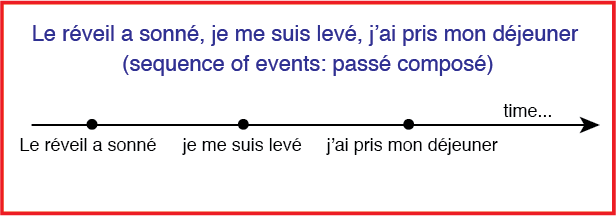

For example: ‘I had given the messuage to Lucy, when I realised my mistake. It is easiest to understand it as a past ‘past’ action. The pluperfect tense (or past perfect in English) is used to describe finished actions that have been completed at a definite point in time in the past. … The exception to this concerns direct objects: the participle does not agree if the reflexive verb is followed by a direct object.

In the case of reflexive verbs (which always take être as their auxiliary in the plus-que-parfait), the participle generally agrees with the subject. The plus‐que‐parfait is the compound form of the imperfect and is formed by using the imperfect of the appropriate helping verb ( avoir or être) + the past participle of the verb. The plus‐que‐parfait (the pluperfect) indicates that an action had taken place and had been completed before another past action took place. Examples in English are: “ we had arrived“ “they had written”. The pluperfect (shortening of plusquamperfect), usually called past perfect in English, is a type of verb form, generally treated as a grammatical tense in certain languages, relating to an action that occurred prior to an aforementioned time in the past. The term “plus-que-parfait” suggests “ more in the past than the perfect.” The tense is used to indicate actions which took place before another action in the past, which is usually (though not always) described in the perfect (passé composé).

36 Learn French – Unit 8 – Lesson L – Le plus-que-parfait.35 How and When to use the PLUS-QUE-PARFAIT in French // French Conjugation Course // Lesson 42.27 What is the past anterior in French?.23 What’s the difference between passé Composé and passé simple?.22 How do you know when to use avoir or être?.21 What is participe passe and passe compose?.19 What is the past conditional in French?.16 Which is the imparfait ending for vous?.13 What is the difference between imperfect and pluperfect?.=>Un billet aller-retour is the translation for the English word a return ticket. => I asked for a one way ticket and not for a return ticket. J'ai demandé un billet aller simple et non un aller-retour. In that context, it means a travel from one place to another or it can also mean a one-way ticket. In French, The verb aller can be used as a noun. Ils vont aux États Unis => They are going to the US. Nous allons à léglise => We are going to church Je vais à la fête => I am going to the party

Je vais au marché => I am going to the market When it is used with the preposition à, some changes might be operated depending on the article placed after it. Je vais chez mon ami => I am going to my friend's house. Je vais dans ma chambre => I am going in my bedroom. Je vais de Paris à Singapour en avion => I go from Paris to Singapore by plane ) to indicate a destination or the ways something is done. Aller used for indicating a place /destination When talking about places, we usually use the verb aller followed with a preposition (à, en, de, chez, dans. Il va arriver dans quelques minutes => He is going to arrive in few minutes. Je vais partir maintenant => I am going to leave now. This tense is the equivalent of the English "to be going to." To express the future tense, especially in a very near future, which will take place in a short period of time, we use the verb aller. Aller used as an auxiliary verb in near future tense (futur proche) In this context, the verb to go (tu vas/vous allez) is equivalent to "to be" in English. When greeting someone and asking how is doing, we use the expressions below which can both be translated in French as "how are you".Ĭomment vas-tu ? is used in an informal situation.Ĭomment allez-vous? in a formal situation.


 0 kommentar(er)
0 kommentar(er)
